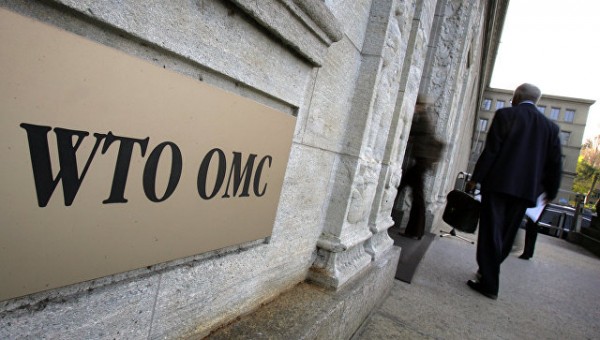Saudi Cites National Security to Block WTO Case Brought by Qatar

2018-12-05 - 8:15 p
Bahrain Mirror- Reuters: Saudi Arabia has told the WTO that national security concerns mean it cannot allow the world trade body to settle an intellectual property dispute with Qatar, according to a transcript seen by Reuters.
Qatar launched the dispute in October, saying Saudi Arabia was blocking Qatari-owned broadcaster beIN and refusing to take effective action against alleged piracy of beIN's content by "beoutQ", a sophisticated pirating operation.
It is unclear who owns beoutQ or where it is based. Saudi officials say Riyadh is committed to fighting piracy - in June they said the kingdom had confiscated 12,000 pirating devices.
Qatar's beIN is blocked in Saudi Arabia under a boycott imposed when Saudi Arabia and its allies severed diplomatic ties with Qatar on June 5, 2017, over Doha's alleged support of terrorism. Qatar denies those accusations.
The Saudi representative told a WTO dispute settlement meeting that Riyadh had cut ties protect its vital security interests and that WTO agreements could not override that decision.
"My government considers that the severance of diplomatic relations renders impossible the conduct of any dispute settlement procedures," the Saudi trade diplomat said.
Qatar told the WTO in a Nov. 9 filing that Saudi Arabia had refused to meet Qatari officials to try to resolve the dispute, as required by WTO rules, and therefore it was requesting adjudication.
But Saudi Arabia's representative told Tuesday's meeting that a WTO dispute panel would have no right to adjudicate beyond recognising that Saudi Arabia had invoked the WTO's national security clause, giving it an exemption from the rules.
"In sum, my government strongly submits that the WTO is not, and cannot be turned into, a venue to resolve national security disputes," the Saudi official said.
Diplomats have long seen the national security clause as a dangerous tool that would allow any country to get around the rules it doesn't like.
Last year the taboo on invoking that clause was broken in a dispute between Qatar and its Gulf neighbours Bahrain, Saudi Arabia the United Arab Emirates, as well as in a separate dispute between Russia and Ukraine.
The United States subsequently used those grounds to justify the imposition of tariffs on steel and aluminium in March, and a similar threat of tariffs on car imports.
Representatives of the United States, Egypt and Bahrain - all Saudi allies - supported Riyadh's position at the WTO dispute settlement meeting, a Geneva trade official said. The European Union and Turkish diplomats spoke in support of Qatar.
- 2022-07-07Israel Reaches Record Trade Increase With Arab States Under Abraham Accords
- 2022-06-10Israeli PM Bennett Visits Abu Dhabi, Meets with UAE President
- 2022-06-10Israelis to be Allowed into Qatar for World Cup, Officials Say
- 2022-06-06Biden should not Visit Saudi, Meet Crown Prince: US Lawmaker Adam Schiff
- 2022-06-01Israel Signs UAE Free Trade Deal, Its First in Arab World